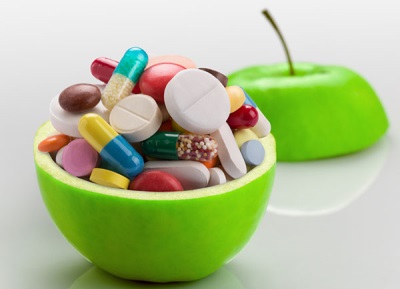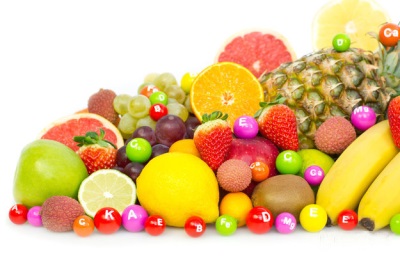Vitamins for teens
Vitamins are important for the health of any person, but for a growing children's body, their necessity is beyond doubt. Without sufficient daily intake of all vitamins, growth processes can be disrupted, which can lead to health problems. Particular attention should be paid to vitamins in adolescence, when physical and mental development is actively taking place in the body of the child.

What age is considered a teenager?
In most countries, adolescents are children aged from 12 to 17 years old, while this age period is divided into the youngest (children from 12 to 14 years old) and older (children from 15 to 17 years old). UN terminology refers to adolescents children aged 10 to 19 years.
What vitamins do teens need?
- For normal physical development and puberty, the child should receive retinol (vitamin A), which is also responsible for the state of vision of children aged 12-17.
- To support the metabolic processes that take place in the body of a child over 12 years old, vitamins of group B are especially important.
- Adequate intake of vitamin D is very important for healthy teeth and skeleton. This vitamin is especially needed for students aged 13-16.
- The full growth of a child of 13-15 years is impossible without vitamin E. This vitamin also helps adolescents to withstand infections.
- Ascorbic acid is the most important vitamin for enhancing the immunity of children aged up to 14 years old and over 15 years old. It is also necessary for connective tissue, the absorption of iron and the condition of the vascular walls.
- Adequate intake of vitamins H and A will help with skin problems that often occur in adolescents.
- Vitamins K and PP are important for normal blood circulation.
To make it easier for parents to navigate in the assessment of the amount of vitamins that a teenager receives from food or from a multivitamin supplement, you need to know the daily requirements for vitamins during adolescence:
|
Vitamin |
Need a day girl |
Need a day boy |
|
A (retinol) |
3000 IU |
|
|
B1 (thiamine) |
1.1 mg |
1.5 mg |
|
B2 (riboflavin) |
1.3 mg |
1.8 mg |
|
Pantothenic acid |
4-7 mg |
|
|
B6 (pyridoxine) |
1.6 mg |
2 mg |
|
Folic acid |
200 mcg |
|
|
AT 12 |
2 mcg |
|
|
Vitamin C |
60 mg |
|
|
Biotin |
15 mcg |
17 mcg |
|
D |
400 IU (10 µg) |
|
|
PP |
15 mg |
17 mg |
|
E (tocopherol) |
8 mg |
10 mg |
|
TO |
45 mcg |
|
Indications
Vitamin complex supplements prescribed in adolescence with:
- Inadequate and poor nutrition of a teenager.
- Lagging behind.
- The recovery period after a long or acute illness.
- Long-term treatment with any medication (especially antibiotics).
- Seasonal deficiency of vitamins in food.
- Living in adverse environmental conditions.
- Significant mental stress.
- Reduced appetite.
- Sports activities.
Opinion about the need for vitamin complexes for a child among doctors is very different. The doctor from the Union of Pediatricians of Russia - S. Makarova considers their input necessary for every child. See the video for more details.
Contraindications
Vitamin supplements should not be prescribed to adolescents in case of hypersensitivity to their ingredients, as well as the presence of hypervitaminosis D or A. If you have any serious health problems with a teenage child, you should consult a pediatrician about buying vitamins.
Should I use to strengthen the immune system?
In adolescence, the immune system functions under high loads, so it is worth supporting it with vitamins, which affect the resistance of the child's body to viruses and bacteria. These vitamins in the first place include ascorbic acid, as well as vitamins E, A and D. It is important to ensure that these vitamins in the diet of adolescents are sufficient.
You can also support the immune system with special vitamin complexes, for example, Immuno Kids supplement from Multi-tabs or VitaMishki Immuno +.
Forms of release
Children's vitamins are produced in different forms - from sweet syrups and marmalade lozenges to capsules, coated tablets and injectables. In this case, with the preventive purpose, most often adolescents buy chewable vitamins.
What vitamins are better to give: a review of popular
The most popular multivitamin complexes under the age of 14 years are:
|
Name and release form |
Age of use |
Composition |
Features and benefits |
Daily dosage for adolescents / Number of servings per pack |
|
Kinder Biovital (gel) |
From the first year of life |
Lecithin 10 vitamins 3 minerals |
Gel form is easy to use. The additive has the smell and taste of fruit. Can be used in the treatment of stomatitis. |
10 g / 17.5 servings per pack |
|
Vitrum Junior (chewable tablets) |
From 7 to 14 years |
13 vitamins 10 minerals |
In addition, high content of magnesium, calcium and phosphorus. The complex stimulates mental development and strengthens the immune system. |
1 tablet / 60 servings per pack |
|
Multi-tabs Teen (chewable tablets) |
From 11 to 17 years |
11 vitamins 7 minerals |
The complex has a high iodine content. The supplement activates the body's defenses and helps in recovery from illness. |
1 tablet / 30 or 60 servings per pack |
|
Sana-Sol for teenagers (chewable tablets) |
From 11 to 17 years |
11 vitamins and 10 minerals |
Pleasant strawberry flavor. Differs in an increased dose of vitamin D. It is recommended at increased loads and inadequate nutrition. |
1 tablet / 40 servings per pack |
|
Pikovit Forte 7+ (coated tablets) |
From 7 years to 14 years |
11 vitamins |
High content of B-group vitamins. Pleasant tangerine taste. Does not contain sugar. |
1 tablet / 30 servings per pack |
|
Supradin Kids Junior (chewable tablets) |
From 5 years to 13 years |
12 vitamins Choline 9 minerals |
Due to the presence in the composition of choline additive has a positive effect on the brain. Pleasant taste of citruses. |
Till 11 years - 1 tablet, older than 11 years - 2 tablets / 30 or 50 servings in packs |
|
Alphabet Schoolboy (chewable tablets) |
From 7 to 14 years |
13 vitamins 10 minerals |
Designed taking into account the compatibility of vitamins and minerals with each other. Well affects the performance, immunity and resistance of the child to the loads. |
3 tablets / 20 servings per pack |
|
Jungle (chewable tablets) |
From 3 years old |
10 vitamins |
Pleasant citrus taste and shape of animals. Normalizes metabolic processes, increases defenses. |
Up to 12 years - 2 tablets, older than 12 years - 2-3 tablets / 15 or 50 servings in packs |
|
Children's Centrum (chewable tablets) |
From 4 to 12 years |
13 vitamins 5 minerals |
The supplement will help with malnutrition and reduced immunity. The complex supports mental development and the formation of the skeleton. In tablets there are no dyes and sugar. |
1 tablet / 30 servings per pack |
Teenagers over the age of 14 are most often bought such vitamin complexes:
|
Name and release form |
At what age are they taking |
Composition |
Features and benefits |
Dosage for teenagers and the number of servings per pack |
|
Vitrum Teen (chewable tablets) |
From 14 to 18 years |
13 vitamins 11 minerals |
The tablets have a chocolate flavor. In addition, a lot of calcium, magnesium and phosphorus to support the musculoskeletal system of a teenager. Due to the presence of vitamins E, A, C and group B, as well as selenium and zinc prevents the appearance of acne. The supplement normalizes the metabolic processes and helps with psycho-emotional overload during the exam. The drug compensates for nutritional deficiencies in monotonous and unbalanced nutrition. |
1 tablet per day / 60 servings per pack |
|
Alphabet Teen (chewable tablets) |
From 14 to 18 years |
13 vitamins 10 minerals |
In the development of this complex were used scientific advice on the interaction of useful substances with each other. The drug is prescribed for the period of preparation for the exams and when visiting sports sections. The main components of white vanilla tablets are calcium and vitamin D. From an orange pill a teenager will receive valuable antioxidants. The main ingredient of the cherry pill is iron. In tablets there are no preservatives, synthetic dyes and flavors. |
3 tablets per day in any order / 20 servings per pack |
Also, children 15 years and older can continue to give Kinder Biovital, Jungle, Pikovit Forte, VitaMishki and Multi-tabs Teenager.
Nutritional correction as an alternative
The diet of a teenager, unfortunately for many parents, often includes a large number of unhealthy foods, for example, fast food. And to avoid hypovitaminosis and the need to take vitamin complex supplements, parents should control the menu of their son or daughter more.
For normal development and full provision of vitamins, a teenager should use daily:
- Fish, liver, poultry or meat.
- Butter.
- Different fruits and berries.
- Eggs
- Bread of a different type.
- Vegetable oil.
- Milk products.
- Fresh and thermally processed vegetables.
- Cereals or legumes.
- Nuts
- Greenery.
Opinion Komarovsky
A popular doctor calls vitamins vital compounds, without sufficient intake in the body of a teenager can grow growth processes. Komarovsky believes that the correction of vitamin intake in children should begin with an assessment of the nutrition of a teenager.
According to the famous pediatrician, it is much more important to focus on balancing the diet of the child than to buy multivitamins for prevention. Komarovsky does not recommend the use of pharmaceutical vitamin supplements for prophylactic purposes, considering that such complexes are needed only in the presence of hypovitaminosis. Read more about it in his program.
Tips
- If you are going to buy vitamins for a teenager, remember that supplements for adults are not suitable for them. Watch the complex, in the annotation to which the possibility of use in adolescence is indicated.
- To be sure of the quality of the vitamin supplement that you will give to a teenager, buy the drug at a pharmacy, choosing something from a range of well-known manufacturers with a good reputation.
- Deciding to buy a teenager a complex in which minerals are added to the vitamins, pay attention to the dosages of calcium, zinc, magnesium, copper, iron and phosphorus. These are the most important mineral compounds under the age of 17 years.












